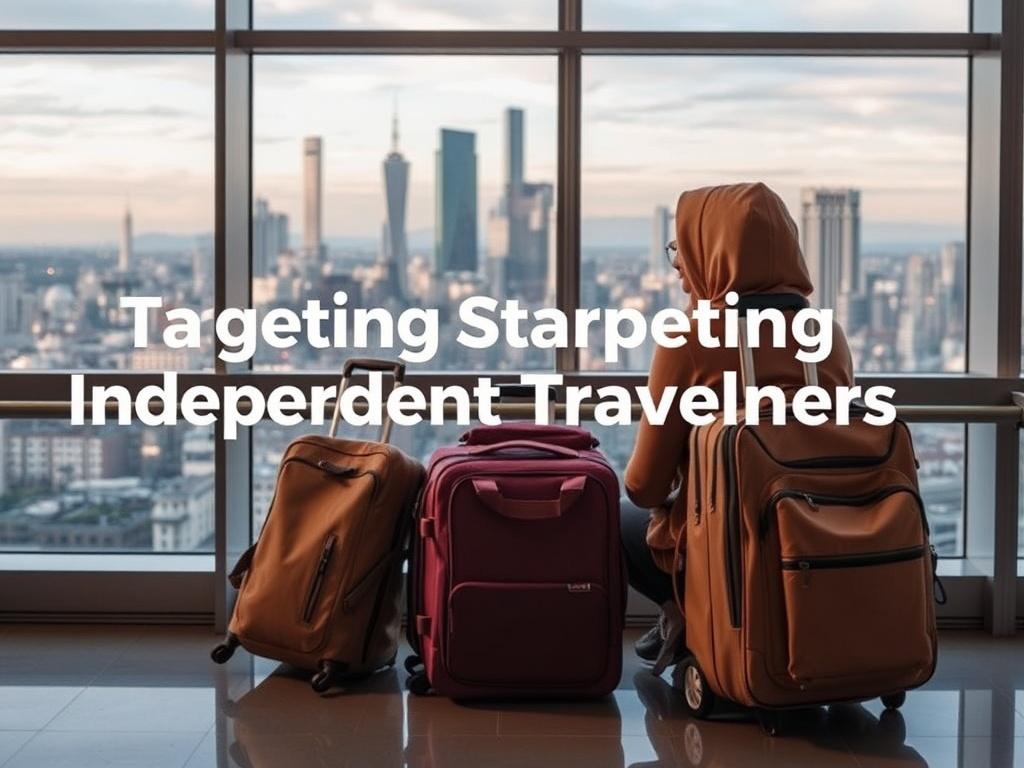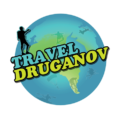Traveling independently is one of the most exciting and rewarding ways to explore new destinations. You have the freedom to create your own schedule, dive deeper into local cultures, and experience the world at your own pace. However, along with this freedom comes a need for vigilance—especially when it comes to avoiding common scams targeting independent travelers. Scammers often see solo and independent travelers as easier marks because they might not have local knowledge or the backup of a travel group. Understanding these scams can help you stay safe, enjoy your journey fully, and avoid unexpected setbacks.
In this article, we will break down the most common scams independent travelers face, offer practical tips on how to spot them before it’s too late, and provide advice on what to do if you encounter suspicious activity. We’ll also highlight key areas where scams tend to cluster, from transportation and accommodation to sightseeing and everyday interactions with locals.
Why Independent Travelers Are Attractive Targets for Scammers
Independent travelers often seek out authentic, off-the-beaten-path experiences, which can sometimes take them away from well-trodden tourist spots—places where scams are easier to spot and avoid. Being new to the surroundings can sometimes make it harder to recognize suspicious behavior or fraudulent schemes. Without organized tours, travelers may rely more heavily on locals for information, which can unfortunately put them in vulnerable situations.
Moreover, independent travelers often carry cash, credit cards, and travel documents without the security measures that group tours or hotels sometimes provide, making them more appealing to pickpockets and con artists. A lack of familiarity with local customs and pricing norms can also cause travelers to unknowingly agree to overpriced services or products.
The Top Common Scams Targeting Independent Travelers
Let’s take a detailed look at the most widespread scams independent travelers are likely to encounter and how to navigate them safely.
1. Fake Taxi Scams
One of the most common scams targeting independent travelers involves illegal or unlicensed taxis. In many popular destinations, travelers may be approached by taxi drivers who refuse to use the meter or insist on a fixed, inflated price before the journey begins. Sometimes, these fake taxis will take a longer route to increase the fare or stop at unnecessary places to charge extra.
How to Avoid the Fake Taxi Scam:
- Always use licensed taxi services or reputable ride-hailing apps like Uber or Grab.
- Agree on the fare beforehand if the taxi doesn’t have a meter, but research typical prices online before your trip.
- Ask your accommodation or locals you trust to recommend reliable taxi companies.
2. Accommodation Scams
Booking accommodation is another area where scams occur frequently. Sometimes, online listings for apartments, hostels, or hotels are fake, designed to lure travelers into paying upfront for places that do not exist or are vastly different from advertised. Other times, unscrupulous hosts might charge extra fees upon arrival or cancel bookings at the last minute, leaving you stranded.
Tips to Sidestep Accommodation Scams:
- Use trusted booking platforms with verified reviews.
- Avoid making payments outside secure payment systems.
- Confirm your reservation closer to your arrival date directly with the property.
3. Street Vendor and Market Scams
Independent travelers often enjoy exploring local markets but should be cautious about scams at stalls and with street vendors. Common tactics include shortchanging with fake change, inflating prices for tourists, or swapping real products for inferior replicas after purchase.
Ways to Navigate Market and Vendor Scams Safely:
- Research typical prices for popular items so you have a baseline for negotiations.
- Always count your change carefully when making cash transactions.
- If possible, shop where you see locals buying to avoid tourist price hikes.
4. Confidence Tricks and Overfriendly Strangers
Independent travelers often appreciate connecting with locals, but scammers sometimes use overly friendly approaches to gain trust and then exploit it. For example, a stranger might offer to guide you somewhere, only to demand excessive payment afterward or lead you somewhere less safe. Another trick is asking for help or donations, playing on your goodwill.
Staying Alert to Confidence Tricks:
- Trust your instincts; if something feels off, politely decline or distance yourself.
- Politely avoid unsolicited offers for private tours or “special deals.”
- Establish boundaries around your personal space and belongings.
5. Pickpocketing and Distraction Scams
One of the oldest tricks in the scam playbook involves pickpocketing, often combined with distraction techniques. A common scenario is someone bumping into you or creating a scene while an accomplice slips a hand into your bag or pocket to steal your valuables.
Practical Safety Tips Against Pickpocketing:
- Use anti-theft bags with secure zippers and keep them in front of you.
- Keep phones, wallets, and passports in inner pockets or hidden compartments.
- Stay vigilant in crowds, public transport, and busy tourist spots.
6. Counterfeit Currency and Card Skimming
In some destinations, counterfeit banknotes are circulated often, and travelers might unknowingly accept fake bills as change. Additionally, card skimming—where criminals manipulate payment terminals or ATMs to capture credit card data—is a growing concern.
How to Protect Yourself from Currency and Card Frauds:
- Familiarize yourself with the look and feel of local currency.
- Use ATMs in secure locations, such as banks or trusted hotels.
- Regularly check your credit card statements for unauthorized transactions.
7. Tourist Attraction and Ticket Scams
Some scammers exploit the excitement of sightseeing by selling fake or invalid tickets for popular tourist attractions, concerts, or events. Others might charge “special fees” for entry or claim the site is closed and offer alternate “exclusive” tours for much higher prices.
Tips to Avoid Tourist Attraction Scams:
- Buy tickets only from official offices or highly reputable online platforms.
- Do research to know the exact prices and opening hours in advance.
- Be cautious of third-party agents offering last-minute discounts or extras.
Summary Table: Common Scams and How to Avoid Them
| Scam Type | Description | How to Avoid |
|---|---|---|
| Fake Taxi Scams | Unlicensed taxis overcharging or taking longer routes | Use official taxis or ride-share apps; agree on price beforehand |
| Accommodation Scams | Fake listings or last-minute cancellations | Book via trusted platforms and confirm reservations directly |
| Street Vendor Scams | Overcharging, shortchanging, or product swaps | Know typical prices; count change; shop with locals |
| Confidence Tricks | Overfriendly strangers leading to exploitation | Decline unsolicited help; trust your gut |
| Pickpocketing | Distraction techniques to steal valuables | Use secure bags; remain alert in crowds |
| Counterfeit Currency & Card Skimming | Fake bills and data theft via ATMs | Learn currency features; use secure ATMs; monitor statements |
| Tourist Attraction Ticket Scams | Fake or overpriced tickets | Buy from official sources only; research prices |
How to Respond if You Encounter a Scam
Despite your best efforts, there is always a chance you might stumble onto a scam. How you react can make a big difference in the outcome. The first and most important rule is to stay calm—not allowing panic to cloud your judgment or escalate the situation. Politely but firmly refuse to engage if you feel that you’re being pressured.
If you realize you have been scammed, try to gather as much information as possible without putting yourself at risk. For example, note down descriptions of the individuals, license plate numbers for taxis, or get the contact information of witnesses when possible. Report the incident to local authorities, your accommodation manager, or your embassies as soon as you can. This not only helps you potentially recover losses but also warns and protects other travelers.
Building Awareness Before Your Trip
One of the best tools in your anti-scam arsenal is knowledge. Before you even leave home, spend time researching your destination thoroughly. Travel blogs, forums like TripAdvisor, and official tourism websites are excellent resources for learning about common scams in particular cities or countries. Reading recent traveler reviews might give you fresh insights into what to expect and which neighborhoods or vendors to avoid.
When you’re prepared, you’ll be less likely to fall victim to common scams targeting independent travelers because you’ll recognize the warning signs early.
Practical Packing Tips to Protect Yourself

Packing smartly can contribute significantly to your safety. Here are a few key items to include:
- Money belt or hidden pouch: This keeps your cash and important documents close to your body and away from easy reach.
- Small lock: Useful for securing backpacks or lockers in hostels.
- Copy of your passport and important documents: Keep digital and physical copies separately in case originals are lost or stolen.
- Portable phone charger: Ensures you can call for help or look up information in case you’re stranded.
Technology and Apps That Can Help
Technology plays a vital role in boosting traveler safety. Here are some apps and tools independent travelers find useful:
- Ride-hailing apps: Uber, Lyft, Grab, Bolt offer safer and transparent taxi alternatives.
- Currency converter apps: Help you double-check prices and exchange rates on the spot.
- Offline maps and translator apps: Google Maps offline mode, Google Translate to assist when internet access is limited.
- Travel safety apps: Sitata, SmartTraveler provide alerts about local issues or scams.
Final Thoughts

Traveling independently is a fantastic way to see the world on your own terms, but it comes with a set of risks, including various scams designed to exploit unsuspecting travelers. By educating yourself about the common scams targeting independent travelers, practicing cautious behavior, and leveraging technology and local resources, you can minimize your risk and maximize your enjoyment. A blend of preparation, alertness, and a calm mindset will keep your adventures fun and safe, allowing you to savor every moment of your journey with confidence.
Conclusion
Navigating the world as an independent traveler means packing your bags with more than just clothes—you also need a good measure of street smarts. Understanding the common scams targeting independent travelers and knowing how to avoid or respond to them can prevent a lot of headaches and heartaches on the road. Whether it’s negotiating taxi fares, booking accommodations, or simply walking through a crowded market, vigilance and research are your best allies. Remember, the goal of these scams is to catch you off guard, so staying informed and cautious ensures that your travel memories remain about the incredible places and people you meet—not about the tricks you narrowly escaped. Safe travels!









